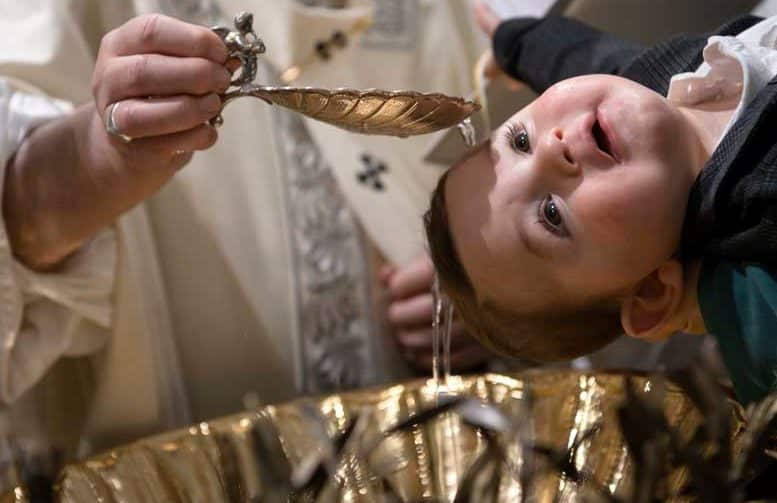
Dear Father, are Catholics supposed to believe that original sin was committed by a single pair of humans, called Adam and Eve? If so, how was the sin passed on to their offspring? I have never understood this.
The constant teaching of the church, based on the Bible, is that original sin was indeed committed by a first pair of human beings, whom the Bible calls Adam and Eve. The first three chapters of Genesis relate all of this.
But independently of the Bible, common sense tells us that human beings had to have a beginning, a first pair. We humans, after all, didn’t always exist. Therefore, at some stage in the distant past, there had to be a first man and a first woman.
But did we begin from one first pair of humans, as the Bible teaches, or from several or even many?
If we evolved from other living beings—let us call them apes—there might have been many first pairs of apes which became human, giving rise to different human families. But this presents a problem.
All humans have 23 pairs of chromosomes, and no ape in existence has that number. The so-called great apes—chimpanzees, gorillas and orangutans—from which humans might have evolved, all have 24 pairs. In short, all humans form one family, and we are all derived from one first set of parents.
In any case, the church has something to say about this. Pope Pius XII, in his encyclical Humani generis (1950), wrote that we must believe that there was only one first pair of humans.
The reason is that belief in multiple first pairs cannot be reconciled with the doctrine of original sin, which scripture and tradition tell us was committed, in actual historical fact, by one man and was passed on to all by their descent from him (cf. Rom 5:12-19).
In an earlier document, the Pontifical Biblical Commission in 1909 declared that the unity of the human race is to be reckoned among those facts which affect the foundations of the Christian religion and which, on this account, are to be understood in their literal, historical sense.
As we know, Adam and Eve committed the original sin when they ate the fruit of a tree forbidden to them by God and, in so doing, lost the state of sanctifying grace with its intimate relationship with God.
They consequently became subject to suffering and death, concupiscence and the devil. They also incurred the guilt of having offended God.

How were the effects of this sin transmitted to their offspring? Was it just by giving them bad example, and so each generation down to the present has given bad example to the next?
No, this idea was taught by Pelagius in the fifth century and it was rejected by St Augustine, and later by the synods of Mileve (416), Carthage (418) and Orange (529) and by the Council of Trent (1546).
Trent taught that the sin was transmitted to all generations not by imitation, but by descent, or generation.
That is, it is passed on by parents giving birth to children, who are born in the state of original sin.
It should be understood that sanctifying grace and freedom from suffering and death, which Adam and Eve had, were not something owed to human beings, but were rather gifts freely bestowed on them by God.
It is as if a couple had inherited a large sum of money and then lost it, so they could not pass it on to their children.
St Paul speaks of original sin being passed on to all the offspring of Adam and Eve, and of it being removed by Jesus Christ through his death and resurrection:
“Then as one man’s trespass led to condemnation for all men, so one man’s act of righteousness leads to acquittal and life for all men. For as by one man’s disobedience many were made sinners, so by one man’s obedience many will be made righteous” (Rom 5:18-19).
The belief of the early church in this reality is seen in the age-old practice of baptising children “for the remission of sin.” In the case of infants, the only sin on their soul is original sin.
What is more, anyone who would deny the reality of original sin is denying the very reason why God became man in Jesus Christ: to atone for original sin and personal sin, reconciling mankind with the Father and opening the gates of heaven by his death on the cross.
